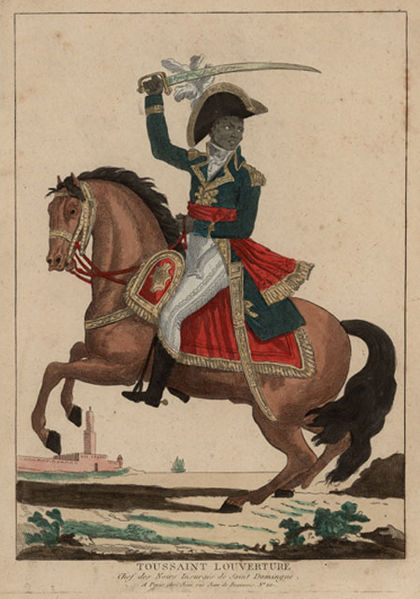
http://www.frenchcreoles.com/420px-Toussaint_L%27Ouverture.jpg
The Haitian Revolution was truly an inevitable occurrence after the Enlightenment. As the ideas of equality and freedom spread, it infiltrated all social classes, even slaves in Saint-Domingue. When L'Ouverture rose up in leadership, the large slave population realized how much power they had. The Haitian Revolution was a revolution with a very clear goal from start to finish: independence for the slaves.
Although L'Ouverture switched sides many times during the revolution, first leading the slaves, then siding with the Spanish, then back again with France, he had one goal in mind at all times. He first rose up against the white planters and free coloreds on the island with rebellions that threatened the precious economy of Saint-Domingue. He felt he needed to attack the group that was enslaving them, and therefore his enemy was the French. He soon decided to join the Spanish, having a common enemy in France. However, as soon as France saw they were close to losing a valuable island, the French National Assembly decided to approve the abolition of slavery. With their new freedom, the slaves decided to thank their benefactors (and protect their new freedom), France, by helping them remove the foreign invasion, including the English and the Spanish. They were very successful. However, when Napoleon came to power, their freedom was once again threatened. When the knowledge of L'Ouverture's constitution of 1799 reached Napoleon, it was seen as treason. Soon, L'Ouverture was losing his support among the slaves and France was sending ships to bring Saint-Domingue back under France's power. At that point, Napoleon was triumphant and L'Ouverture was taken prisoner and remained a prisoner for the rest of his life. However, his goal and motivation did not die with him. Under Dessalines' leadership, Saint-Domingue declared independence and the slaves' freedom on the island was protected by the law.



